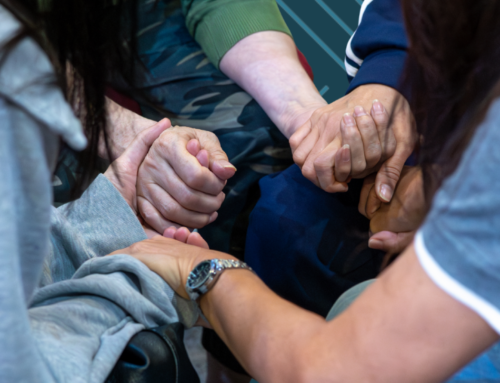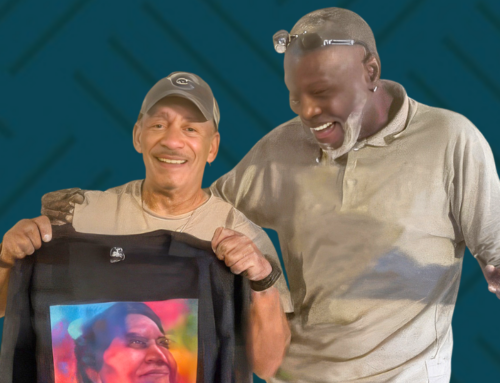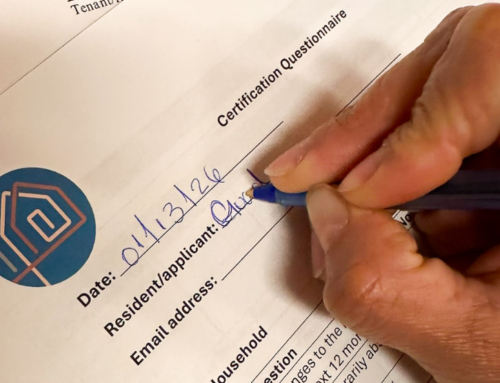As we “build people and communities” in Denver, we are ever mindful of local residents who have made their homes here before us. Joshua Station is situated near the banks of the Platte River, where there have been settlements over thousands of years. We’ll break ground for Clara Brown Commons this year, just a few miles further down the valley.
The ebb and flow of those settlements have revealed our humanity at its cruelest and kindest. At Mile High Ministries we reflect on these stories, listening for how they might speak into our intention to build local communities of justice and peace in our own times.
In the spring of 1859, a wagon train led by Benjamin Wadsworth pulled up to the “Elephant Corral” (today’s 14th and Wazee Streets in Denver). The group’s cook, Clara Brown, may have become the first Black woman to reach the Pikes Peak region. She would have seen the original inhabitants of the area—Southern Arapaho, led by Little Raven, as she passed their village on a low rise just a few yards away.
Another small Arapaho band in the area was led by Niwot, whose name translates to “Left Hand” in English. Although the gold rush had only just begun, Niwot and his family had already watched thousands of white people travel through the region, including homesteaders on the Oregon Trail and Mormons sojourning to Utah.
Foreseeing that these strangers would bring to an end their lifestyle based on the buffalo, Left Hand and his wife embarked on a remarkable expedition. Traveling by horseback with their children, they journeyed through Nebraska and Iowa to learn about the life of the very people whose presence threatened their own livelihood and culture—to investigate how the Arapaho might pivot to become farmers and ranchers.
In April of 1860, Niwot’s band was camped on high ground west of Denver, probably near today’s intersection of Federal Boulevard and Colfax Avenue. While Niwot and most of the men were away on a hunt, a gang of drunken miners led by a man known as “Big Phil the Cannibal” rampaged through the village, raping many of the Arapaho women, including Niwot’s sister—and perhaps also his wife and young daughter.
Sensing that vengeance would stoke an endless cycle of violence, and accepting the assurances of white friends, Niwot prevailed upon his people to trust the white men’s justice system. To their dismay, authorities in Denver did nothing about “Big Phil’s” gang.
Over the next few years, Niwot tried desperately to hold his people together in the face of disease, starvation, and despair. His commitment to adapt to the overwhelming white presence rather than resist with violence cost him the respect of many of his own people.
As the saying goes, “what we see is behind our eyes.” Behind many eyes, including those of Denver civic leaders, was the assumption that genocide was the only solution for the “Indian problem.” After spending time with the Cheyenne, however, Denver founding father Major Edward Wynkoop made the shocking (to him) discovery that they carried a nobility and goodness rarely observed within his own community. (His advocacy for tribal peoples made him a social outcast later in life.)

In September 1864, Wynkoop brought a delegation of Arapaho and Cheyenne “peace chiefs” to meet with Governor Evans at Camp Weld (very near where Joshua Station stands today). Apparently behind the governor’s eyes—and those of his military commander, John Chivington—were fear and fixed ideology. They refused to see the moment as pregnant with the possibility of peace.
Two months after the Camp Weld Council, Chivington would lead an army to the surprise slaughter of hundreds of unsuspecting Cheyenne and Arapaho—including children, women and older men—in their winter camp on Sand Creek. Of sixty Arapaho residents of the camp, four survived. Mortally wounded, Niwot struggled across frozen ground to a Cheyenne camp, dying a few days later.
Ignorance and fear of “the other” drove Evans and Chivington to violence. Niwot, capable of more nuanced thinking about the changing dynamics of his times, sought to understand his enemies and actively extended his hand in peace. He and Cheyenne Chief Black Kettle once paid an expensive ransom in ponies and buffalo robes to hostile Sioux and Cheyenne, and even offered his own life in ransom to buy the freedom of seventeen-year-old Laura Roper and three other white children.
“Blessed are the peacemakers,” Jesus said, “for they shall be called the children of God.” In the spirit of Christ, we offer this blessing in honor of two children of God who lived in this place before us: Blessed are you, Clara Brown of Denver and Left Hand of the Southern Arapaho, peacemakers and children of God. In the face of our own fear, division, and violence, may we learn to see as you saw and live as you lived. Amen.
—Jeff Johnsen
*More Street Saints reflections from Jeff Johnsen can be found in our beautifully illustrated book Beyond Our Efforts: A Celebration of Denver Peacemaking. The stories of Niwot and Clara Brown are found on pages 44-47.








